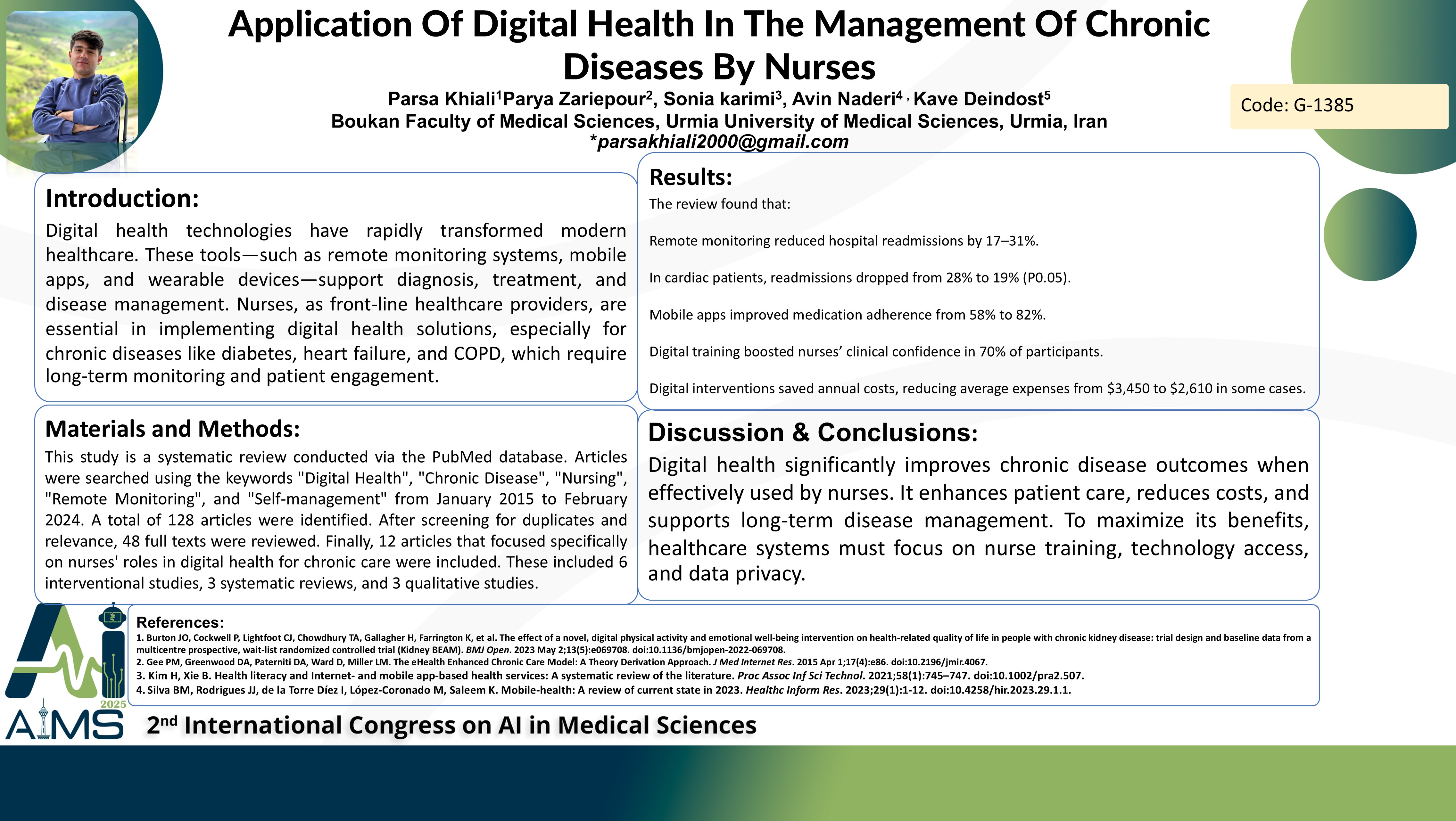Application Of Digital Health In The Management Of Chronic Diseases By Nurses
Code: G-1385
Authors: Parsa Khiali *, Parya Zariepour ℗, Sonia Karimi, Avin Naderi, Kaveh Deindoost
Schedule: Not Scheduled!
Tag: Clinical Decision Support System
Download: Download Poster
Abstract:
Abstract
Introduction: Digital health technologies have rapidly transformed modern healthcare. These tools—such as remote monitoring systems, mobile apps, and wearable devices—support diagnosis, treatment, and disease management. Nurses, as front-line healthcare providers, are essential in implementing digital health solutions, especially for chronic diseases like diabetes, heart failure, and COPD, which require long-term monitoring and patient engagement. Methodology: This study is a systematic review conducted via the PubMed database. Articles were searched using the keywords "Digital Health", "Chronic Disease", "Nursing", "Remote Monitoring", and "Self-management" from January 2015 to February 2024. A total of 128 articles were identified. After screening for duplicates and relevance, 48 full texts were reviewed. Finally, 12 articles that focused specifically on nurses' roles in digital health for chronic care were included. These included 6 interventional studies, 3 systematic reviews, and 3 qualitative studies. Problem Statement: Chronic disease management poses challenges such as limited staff, rising patient numbers, and healthcare costs. Digital health offers new solutions, but adoption depends on how well nurses integrate these tools into practice. Understanding the benefits and barriers is crucial for optimizing digital strategies in chronic care. Findings: The review found that: Remote monitoring reduced hospital readmissions by 17–31%. In cardiac patients, readmissions dropped from 28% to 19% (P0.05). Mobile apps improved medication adherence from 58% to 82%. Digital training boosted nurses’ clinical confidence in 70% of participants. Digital interventions saved annual costs, reducing average expenses from $3,450 to $2,610 in some cases. Conclusion: Digital health significantly improves chronic disease outcomes when effectively used by nurses. It enhances patient care, reduces costs, and supports long-term disease management. To maximize its benefits, healthcare systems must focus on nurse training, technology access, and data privacy.
Keywords
Digital Health,Chronic Diseases,Nusring, Management, mHealth
